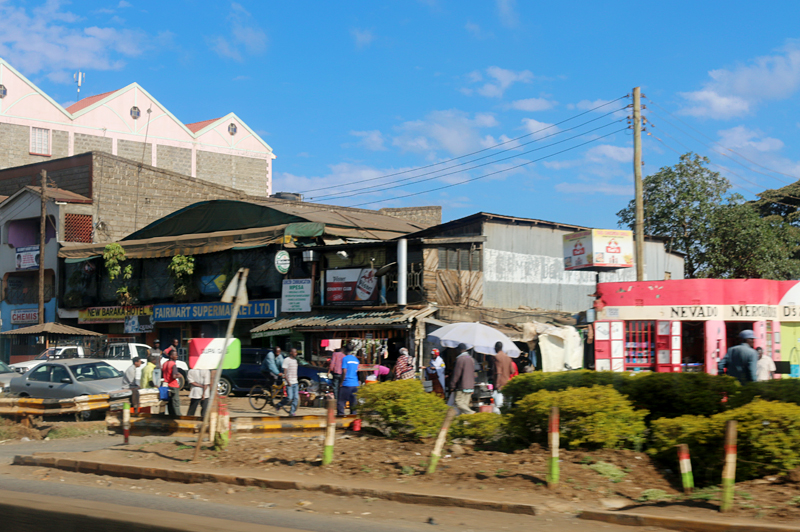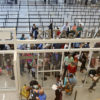“C olombia, South Africa, Saint Kitts and Nevis, Swaziland, Guatemala, El Salvador, Belize and Venezuela round out the top ten countries with the highest murder rates — with Honduras having the highest murder rate in the world at 90.4 per 100,000 people. Should I not visit those countries either?”
That was what I wrote in this article back on Sunday, August 10, 2014 in which I explained why I am never going to Canada again — of which of course I was not being serious, as I have no problem returning to Canada whenever the opportunity arises — and where Jamaica ranks as the sixth most dangerous country in the world in terms of its murder rate of 39.3 per 100,000 people in 2012, according to this “listicle” posted at The Huffington Post…
…which means that your chances of getting murdered are .000393 per person in Jamaica and .000904 per person in Honduras. Is that really a reason not to visit a country?
Are Supposedly Dangerous Places Safe to Visit?
Since I wrote the aforementioned article, I visited two of the dangerous places on that list: South Africa and Swaziland. Alone. And I drove a car in both countries. Guess what? Nothing happened to me; and I never felt like I was in any danger.
In Nairobi, the hotel properties at which I stayed had security checkpoints — complete with scanning systems similar to those found at an airport security checkpoint and barriers to prevent unidentified vehicles from entering — and I had to keep my room key handy, as I was asked multiple times by members of the staff and security team at the hotel if I was a guest. Guess what? Nothing happened to me there, either.
Many people consider Egypt a dangerous country. I never felt like I was in danger when I visited Egypt last year — except, that is, when I was driving a rental car around Cairo and to and from Luxor and Hurghada, as the drivers there act like they are insane. I certainly did not feel like I was in danger when I was unexpectedly trapped in the toilet of my hotel room. If you have wanted to visit Egypt, now is the time to do so for the six reasons I impart here. The biggest issue you may experience will most likely be dealing with the touts — who are also hurting financially and will tend to be more aggressive as a result — when you visit such legendary monuments as the Great Sphinx of Giza. Do also visit the resort towns of the Red Sea — including Hurghada, which I visited; and also Sharm el-Sheikh. If nothing else, Egypt offers a great value for your travel dollar or whatever other currency you use — something which Egypt really needs right now. Guess what? Nothing happened to me there, either
I returned to the city where I was born and raised — New York — where I visited One World Observatory at the new World Trade Center building. Guess what? Nothing happened — well…I believe you get it by now.
“No place is 100% safe, so I will go where I am compelled to go”, Christine Krzyszton wrote in this article for Frugal Travel Guy. “If I’m going to continue to travel, there is always going to be some risk in doing so. Would it be safer to visit the cities that have already had incidences of violence or visit new ones? There is no way to know, so I just have to keep traveling to the places I have planned without fear. I also have trips to Paris and Jakarta coming up and I do not plan on canceling them. Why? Because even though the city I plan to visit may be the next target, I can’t just cross every destination off my list.”
Destinations
This recent article written by Robert Firpo-Cappiello for Budget Travel gives recommendations on ten desirable yet controversial travel spots to which you should either travel or avoid.
- Paris is safe.
- Haiti can be a safe travel destination as long as you take necessary precautions.
- Greece is safe.
- Much of Kenya is currently unsafe and you should only visit on a high-quality escorted tour.
- Egypt is safe, as long as you stick to well-trod travel sites such as Cairo and Luxor.
- Most of Israel is safe, but the U.S. Department of State strongly warns Americans not to visit the Gaza Strip and most areas of the West Bank (other than Jericho and Bethlehem), due to ongoing tensions and risks that can range from rock-throwing to rocket fire.
- Cuba is safe.
- Mexico is safe as long as you stick to major cities and resort towns.
- Indonesia is safe if you’re content to “play tourist” and stick to Jakarta, Bali, and other on-the-beaten-path destinations.
- Destinations prone to the Zika virus are safe — unless you are pregnant — and the list of 36 affected countries and territories are as follows, according to this article from the Centers for Disease Control and Prevention:
- Cape Verde
- Aruba
- Barbados
- Bonaire
- Curaçao
- Dominican Republic
- Guadeloupe
- Haiti
- Jamaica
- Martinique
- Puerto Rico
- Saint Martin
- Saint Vincent and the Grenadines
- Sint Maarten
- Trinidad and Tobago
- United States Virgin Islands
- Costa Rica
- El Salvador
- Guatemala
- Honduras
- Nicaragua
- Panama
- Mexico
- American Samoa
- Marshall Islands
- Samoa
- Tonga
- Bolivia
- Brazil
- Colombia
- Ecuador
- French Guiana
- Guyana
- Paraguay
- Suriname
- Venezuela
Travel to Places Can Be Dangerous, Too
Even travel to places — such as a ship to or from the isolation of Antarctica — can potentially be dangerous, as no fewer than five FlyerTalk members who were not intentionally traveling with each other were on the same ship which suffered from damage as recalled by FlyerTalk member sharkey:
“…on our return to Argentina, we had the additional excitement of the cruise ship striking an iceberg. The iceberg tore a 9 meter opening in the ship’s hull. Fortunately, the opening was above the water line, so we weren’t in any immediate danger. (Managed to avoid the Titanic experience!). The crew worked all day to repair the damage and that night we were able to resume our return trip to Argentina. Thankfully the crew had the knowledge and all of the needed materials to repair the ship. We were able to return safely to port.”
Because there is a demonstrated risk, does that mean that you should not consider traveling to or from Antarctica by ship? In fact, is it safe to travel at all anymore?
Summary
I am not advocating that you should drop a sedentary lifestyle to instantly become a thrill-seeker. What I am saying is that there really is nothing to fear — and that with risk comes excitement, adventure and intrigue. What terrorists hope to do more than kill people — seemingly randomly — is to instill fear in people; and the reaction of chaos, confusion and fear is exactly what terrorists want — even if they are not responsible for the source of that fear. What those who break the law hope to do is steal things from you for their own personal gain — and those type of people exist almost everywhere.
While I would personally be hesitant about visiting a few certain countries — such as Syria, Somalia and Yemen as three examples — right now, the best advice I can impart to you is to take the proper precautions when you travel and remain alert and aware of your surroundings. Know that there are always risks involved — it is never a bad idea to check the destination of your choice here first before you travel if you are a citizen of the United Staes — and know that commercial air travel is still one of the safest methods of travel in the world…
…so sit back, relax and enjoy your travels — wherever you may be headed next. May your travels be packed with plenty of excitement where you will experience reactions of envy every time you tell your travel stories to others — but may you travel safely in the process; and never be afraid to take flight.
Photograph ©2015 by Brian Cohen.

